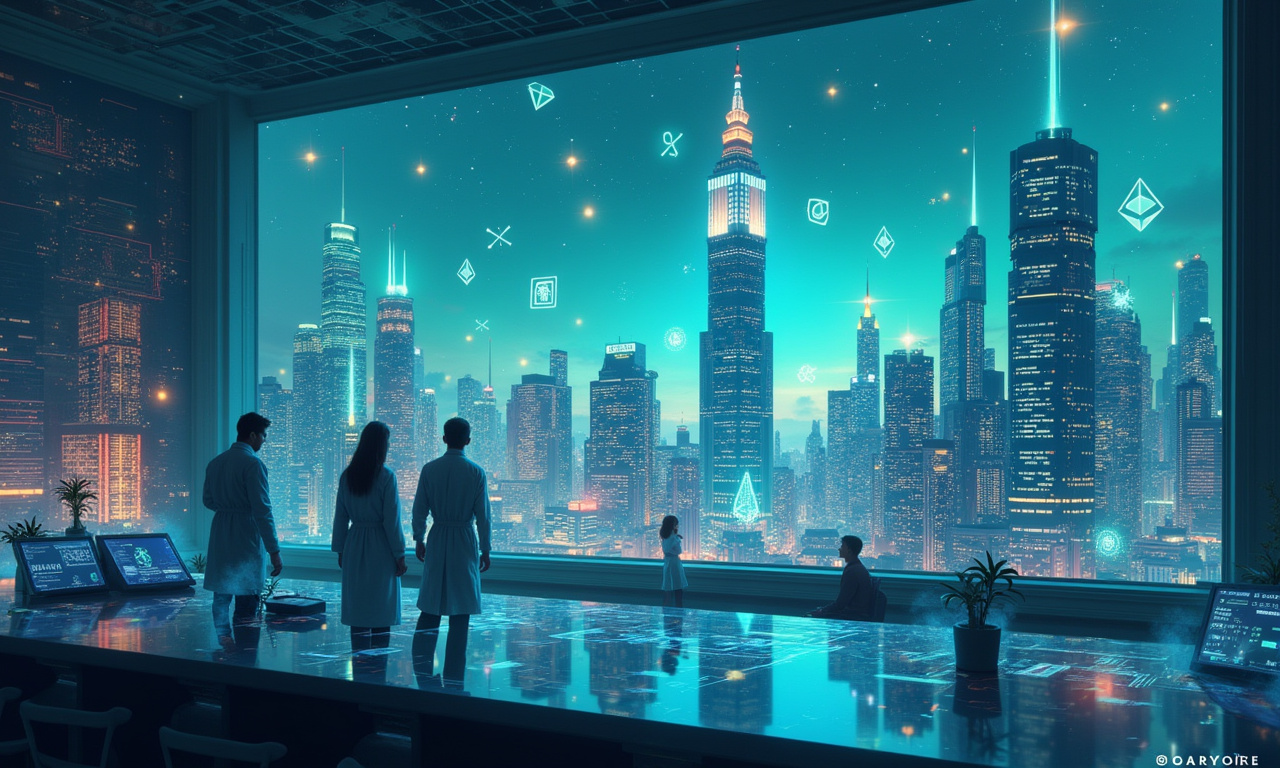So, Nvidia slammed the door on Arbitrum. Crypto's AI dreams are dead, right? Everyone start playing taps on a tuba right now, because as it turns out, one GPU maker’s risk analysis can end an entire industry’s future in a gasp. Or does it?
Let's picture this: hordes of NFT avatars weeping pixelated tears, their digital art careers flashing before their eyes. The sound of a billion cries going up from the blockchain, a chorus of dashed aspirations. Okay, maybe that's a tad dramatic. But honestly, the sheer audacity of Nvidia! Rejecting crypto because it's risky? It’s easy to say that—tell that to anyone who’s ever bought a meme coin and held it longer than five minutes. Talk about irony.
Nvidia's Corporate Culture Clash
The issue isn’t even the rejection—it’s the why. Nvidia, paragon of stiff-collared corporate propriety, apparently horrified at the anarchic savagery that is the NFT market. Now multiply that by a company that could still be using fax machines. Now compare that with reality, where people are buying digital cats for more than your home is worth! The chasm is vast.
It's like your grandma refusing to use TikTok because she doesn't understand why anyone would want to watch a 15-second dance. Happy family With this plan, grandma does seem to control the world’s GPU supply. Wanna work on machine learning, natural language processing or deep learning?
In fact, Nvidia’s developer application page explicitly states, “No crypto.” It’s the digital equivalent of a velvet rope outside a Manhattan club—and crypto’s the dude in ripped jeans and a Bored Ape t-shirt. "Sorry, not our aesthetic."
Risk Aversion or Missed Opportunity?
Let's be brutally honest: Nvidia's playing it safe. Really safe. Is it smart business? Maybe. Is it boring? Absolutely. In fact, they’re so busy avoiding risk, they could be missing out on the next big thing. Think about it: AI and blockchain, hand-in-hand, powering decentralized applications, revolutionizing art, music, finance. But no, gotta protect that "AI-first" brand.
Arbitrum, notwithstanding their token’s…ahem… price woes (down 85%? Yikes!) is very much still the 800 lb. gorilla in the Ethereum Layer-2 ecosystem. They’re looking to advance, looking to invent, looking to find the ways in which they can use AI to expand and enrich their platform. Token buybacks are a band-aid, sure. But looking into creative collaborations such as Nvidia’s accelerator program? Now that’s outside the box. It's a chance to actually build something.
Let’s face it, what does “AI-first” really mean anyway? Are they concerned that some crypto bad actor would commandeer their GPUs? Their concerns are that it will be used to promote even worse NFT art produced by a neural network. The horror!
NFTs Empower Marginalized Voices
This rejection isn’t limited to GPUs and other scaling solutions. There’s a subtle, yet deeply important, political dimension to all of this. The crypto space, for all its flaws and scams, does offer a potential avenue for marginalized artists and creators to bypass traditional gatekeepers. NFTs give power to those who have historically been marginalized by the traditional art ecosystem. They unlock entry into the broader music ecosystem and creative economy.
It looks like Nvidia is shutting the door on crypto. In doing so, it is inadvertently reinforcing the inequalities and power structures that these technologies were created to disrupt. Picture that same Arbitrum, run on AI, funding NFT projects that further social justice, environmental protection or development of the Metaverse for historically underserved communities. It’s a shame too, because that potential is now lost, all due to a corporate risk assessment.
Here's where the meme potential explodes. Nvidia rejecting Arbitrum? That's meme gold. Think Drake meme: Drake looking disapprovingly at crypto, then turning with open arms to…I don't know, enterprise software? It writes itself!
So, are crypto’s AI dreams done for good? Probably not. But it's a wake-up call. Perhaps more than anything else, it underscores the yawning cultural schism that exists between the old guard and the new. And it raises a crucial question: Will Nvidia's risk aversion ultimately stifle innovation and leave them behind in the dust of a rapidly evolving digital landscape? Only time will tell.




